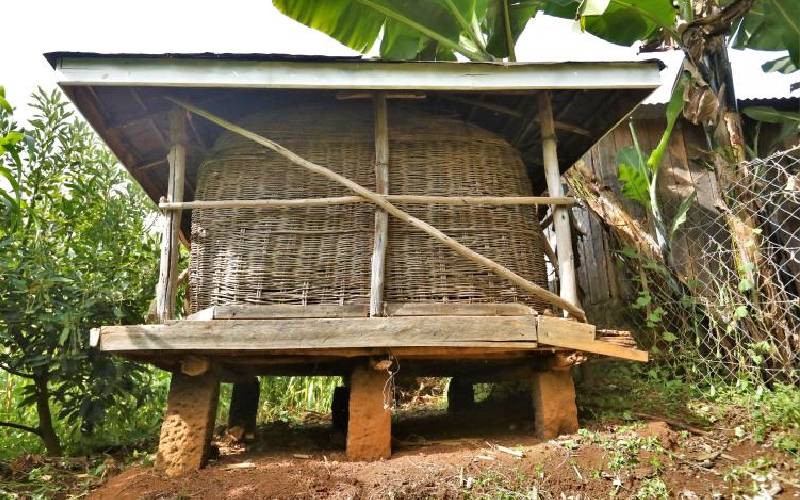×
The Standard e-Paper
Kenya’s Boldest Voice

A pre-colonial granary constructed in 1943 by the late Ernesto Theuri.[Mose Sammy, Standard]
The only gift Enersto Theuri thought he should give to his wife Narcisa Nyokabi when they married in 1943 was a granary.